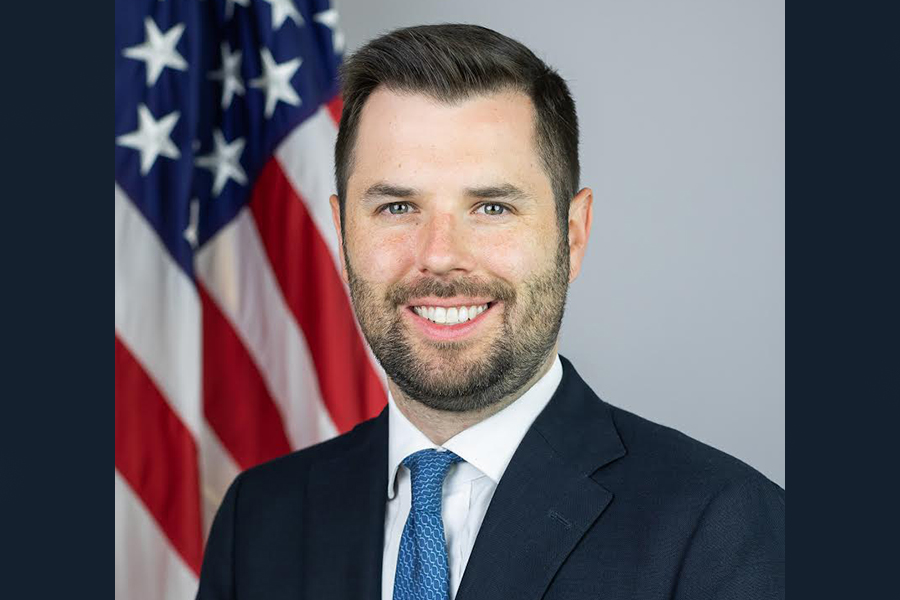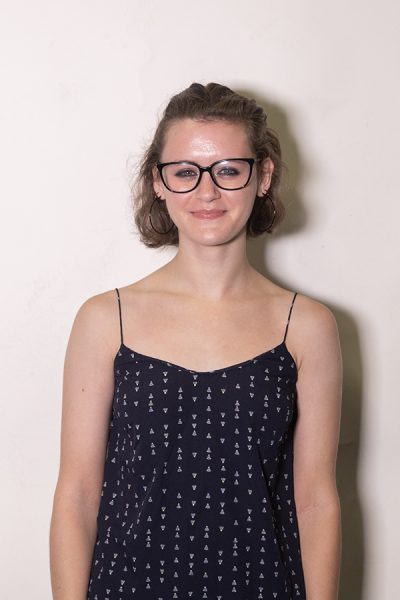Rob Flaherty ’13, deputy campaign manager for President Joe Biden, was awarded the Outstanding Young Alumni award from Ithaca College.
Flaherty graduated from the college with a dual degree in politics and television-radio and has overseen Biden’s digital campaign since 2019. He was the first White House director of digital strategy to serve as the assistant to the president level. Before working under the Biden Administration, he also worked for Beto O’Rourke, Hillary Clinton, Terry McAuliffe and Svante Myrick, the former mayor of Ithaca.
Contributing writer Reese Schenkel spoke with Flaherty about his steps to success and his work in the White House.
This interview has been edited for length and clarity.
Reese Schenkel: What are some common misconceptions about working at the White House?
Rob Flaherty: People think it’s like the “West Wing,” but it’s really like a bunch of “Veep” characters who think they’re on “House of Cards.” You work with some of the best and brightest and fastest thinking people in the world and some of the silliest, most ridiculous things also happen at the same time.
RS: How do you take on such a large position? What are your steps to create a digital strategy?
RF: I mean, the most important thing is the candidate, and you have to run a program that reflects the authentic sort of vibe of who the person is. I’ve been lucky to work with the President now for about five years, and we try to run a program that’s authentic to him. And then from there, you think about who it is that you need to reach … and how to sort of translate his value set and his ethos to those audiences. So that’s kind of how you think about it, and then you work back from where those people spend their time and how you get there.
RS: What does your day-to-day routine look like?
RF: There’s no good one solid answer. I mean, some days we’re meeting with my team on revenue projections for the quarter. … I’ll go to a meeting about our paid media campaign that we’re running right now and how we’re spending and how we’re going to adjust [the] budget. … Sometimes talking to my own colleagues at the White House about how to talk about certain things. … I go to a lot of meetings.
RS: How did Ithaca College prepare you for your career?
RF: The thing that is so great about Ithaca [College] is you don’t need to wait a long time in classrooms to go out and try stuff. … Getting to actually get my hands dirty with it and have professors who help me interrogate why I’m doing things and the best way to do things — that sort of, like, hands-on experience mixed with good teaching leads to you being really ready when you graduate.
RS: What are the steps or internships that were the most meaningful and helpful to you?
RF: While I was in school, I was working for Mayor Myrick’s race. So that was a pretty big one — like actually working on campaigns. I did an internship at the Democratic National Committee. I met some people who helped me get some of my first jobs, so I think that was another one that was really influential. Being able to actually go do things in the wild was really helpful for me. I think it helped sharpen my political instincts even at that point, so that was super, super clarifying and super helpful.
RS: How has the digital industry changed since you started?
RF: It’s gotten way more fractured. I think the nature of social media, both in terms of the way people consume information, it’s getting increasingly personalized, and sort of the “TikTok-ification” of everything, how it’s super personal to you. That sort of trend has accelerated precipitously in 2019 versus the pandemic. But the other thing is the sort of fractionation of broader social media space. I think people are now starting to hang out in smaller spaces, more niche communities. … There are just more people in more places than ever. A digital strategy has to sort of contemplate how you get into all of those places that people might be. And I think the other sort of big thing is … people’s times are being split between public spaces [Netflix, TikTok] on the internet and private spaces [DMs]. The majority of content shared on Instagram is in DM groups now. So a digital strategy now has to contemplate how do you get to people wherever they might be consuming information, but then also how do you get to them in the spaces where they’re talking to their friends too.
RS: What’s some advice you would give to college students aspiring for a position like yours?
RF: One, go do an internship, just get your hands dirty as soon as possible. … The other thing is to remember that when people like me talk about my career, it always sounds really linear, like I did this, I did this, I did this, I did this. But at no moment does it ever feel linear. It’s not clear what the path is next. So it’s important to hold yourself up by your own standards and not other people’s.










Carlos Figueroa • Nov 2, 2023 at 9:39 am
Rob, it was great to see and briefly chat with you again during Alumni Weekend. Cheers, Carlos